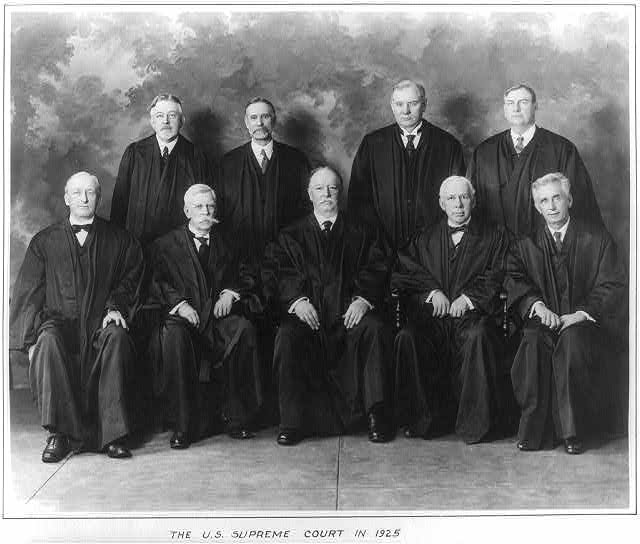Should Supreme Court Justices Have a Limited Term?
Currently, Supreme Court justices do not have a limit on their time in office.
April 26, 2023
*The opinions expressed within the content are solely the author’s and do not reflect the website’s or its affiliates’ opinions and beliefs.*
The United States Supreme Court is one of the American government’s most significant and impactful institutions. The nine justices that compose this entity are responsible for interpreting the Constitution and using their best judgment to uphold and decide on cases that may have profound consequences for the country. Currently, Supreme Court justices are appointed for life unless they choose to retire or are impeached. Therefore, this has created an ongoing debate on whether the Supreme Court justices should have a limited term because of how much power they hold in government.
Problematically, lifetime appointments could lead to an entrenched judiciary that is resistant to altering its perspective. Since the Supreme Court has such an enormous power towards the fate of American law and the individuals affected, the power exercised by justices must represent a diversity of opinions and backgrounds. Lifetime appointments can restrict the number of viewpoints demonstrated by the justices, which could create a lack of balance and nuance in the decision-making process. However, a restricted term could help ensure that the court remains dynamic and responsive to changing societal norms and values.
Freshman Hannah Shalviri offered her insight into the positives and negatives of having a lifelong term.
“As much of the government has limited terms and there are a great amount of people coming into and out of office, the Supreme Court offers stability for the United States, which is needed,” Shalviri said. “There are both sides to this topic. However, I do think the positives outweigh the negatives.”
Some may believe that with a limited term, there would be a deficit in institutional knowledge on the court. Since the Supreme Court justices are some of the most experienced and knowledgeable legal minds in the country, a lack of knowledge may result in less consistent decision-making. Although there would be a lack of experienced justices, skill can always be gained while a change in perspective is difficult to achieve. Despite the concerns that the transition to term limits may be rocky in the short term, ultimately it should not significantly affect any case detrimentally.
Sophomore Yashika Singh gave her interpretation of the debate.
“The Supreme Court has so much power regarding both present and future cases in the United States,” Singh said. “Since the United States is constantly changing culturally and socially, it is essential that the Supreme Court upholds that same constant change. I believe that if there are so many moving factors occurring, then the United States should not depend on nine justices who rarely change.”
In addition, since Supreme Court justices serve for life, there is a strong incentive for presidents to nominate relatively young candidates who are likely to serve for several decades for their beliefs to be upheld by the individual. This has allowed for politicized battles in recent years between Republicans and Democrats to secure a nominee who shares their ideological perspective. However, with term limits, there would be less pressure to appoint young justices, which would ultimately decrease the polarity between political parties.
Freshman Ella Kim voiced her thoughts on the topic by discussing the positives of having a limited term.
“Since the Supreme Court has both an unlimited term and a significant amount of power, I think it would be best to have a limited term in order to have a new and refreshing point of view in government,” Kim said.
Additionally, Supreme Court justices should be free to make decisions based solely on the law and the Constitution without fear of retribution. However, the Constitution is a living document meant to be interpreted differently from person to person, from generation to generation. The exchange of justices allows new perspectives to come into light, which may ultimately benefit the well-being of our country and its constituents.
The overwhelmingly lengthy terms that these justices hold allow them to maintain the same ideologies that may not be relatable to our current society. Therefore, it is essential to enact a limit on the terms of Supreme Court justices because their endless power permits them to accomplish nearly anything regarding prominent cases and the future of our government.





